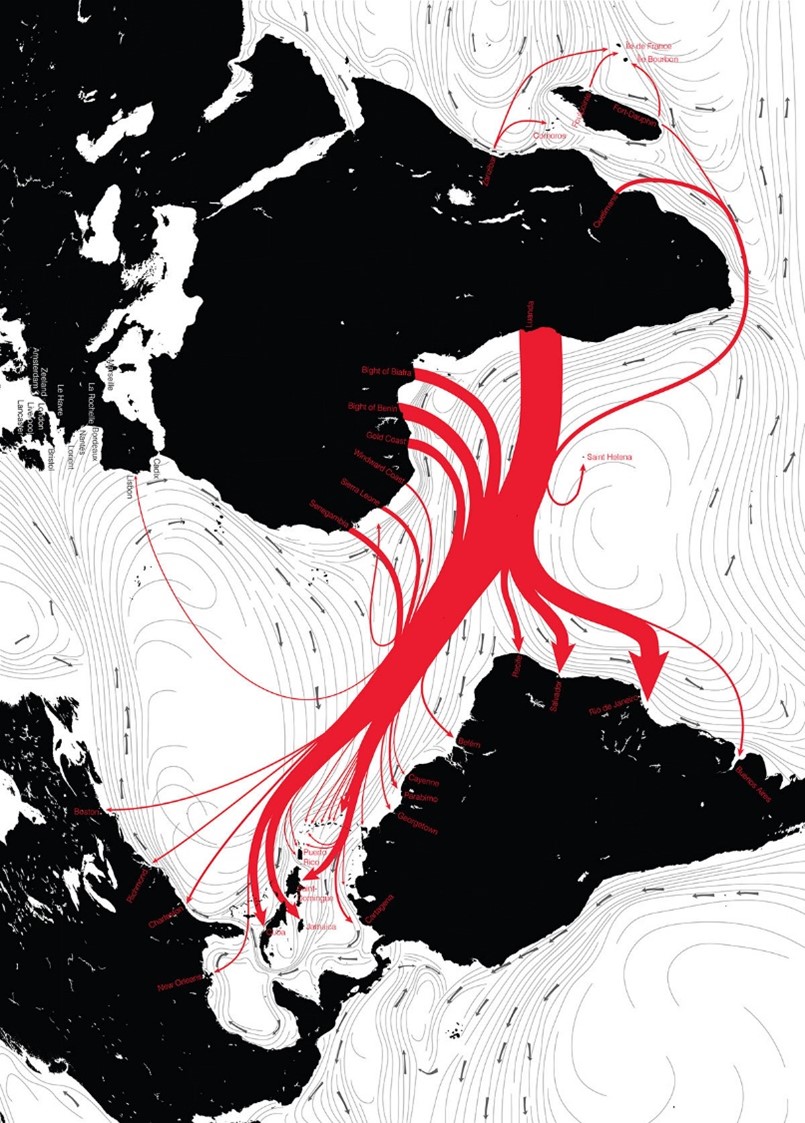Instructor: Boutelle
T 9:30 AM – 12:20 PM
Paul Gilroy’s The Black Atlantic: Modernity and Double-Consciousness (1993) fundamentally changed the way we think about African American literature. Whereas Black literature from the United States had traditionally been read within a predominantly national tradition, Gilroy calls for us to consider Black Atlantic literature within diasporic frameworks that resist containment within any one nationalist tradition. At the same time, in the 30 years since The Black Atlantic’s publication, many critics have problematized the surprisingly narrow scope of Gilroy’s project, which remains deeply US-centric, all but ignores Africa, and tends to treat the Middle Passage of transatlantic slavery as a metaphor rather than a material reality. In this course, we’ll be reading literary and critical texts that theorize the Black Atlantic as both a critical geography and a historical locus. Examining writers from the US, the Caribbean, Latin America, and West Africa, we’ll explore questions like: What does “Blackness” mean and how does its meaning change across time, space, and relations? How do considerations of imperialism, class, gender, and other axes of power/identity shape our understanding of Blackness? What are the uses of “diaspora” as a methodology, a political framework, and a means of identification? How have waterways (including, but not limited to the Atlantic) figured into Black diasporic literature? What is the relationship between transnationalism and statelessness? How do we balance the historical, cultural, and linguistic specificity of the local against the affinities and solidarities of the global?
